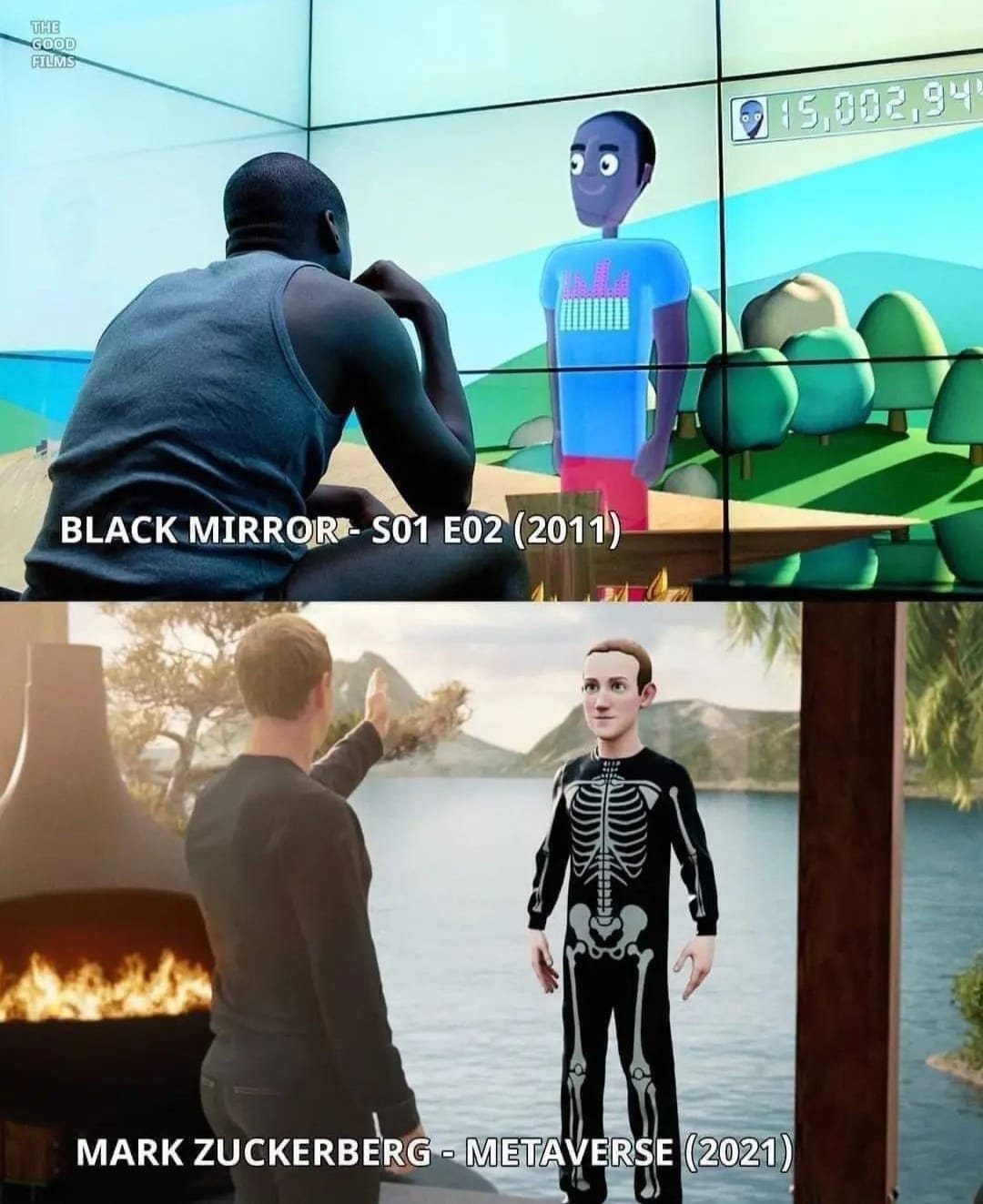🦄 vol. 17
senyo (our first ever feature) and claude chat about unicorns and the metaverse
you asked, we listened. presenting our first (of many) featured pieces: senyo, like akeem from zamunda, is supposedly a descendant of royalty. instead of living the soft life in ghana, he spends his days as a software engineer at one of africa’s most notable agritech players - aerobotics.
For a newsletter called unicorn chats, it's about time we actually started speaking about unicorns 🦄. Yes, I know what you're thinking, why are we so obsessed with unicorns? 🤔 Turns out, they're pretty cool, especially when we're talking about them in the context of tech startups and Africa 🌍.
What is a 🦄 anyways?
In startup jargon, a unicorn is a startup that is valued at $1 billion or more. While the relevance of the number is debatable, they're a useful signal of the strength of a startup ecosystem. 2021 has been an outstanding year for Africa's tech startup scene (specifically Nigeria's 🇳🇬), minting 5 new unicorns this year alone. This is impressive, given that our first unicorn was in 2016, and until this year, we've never had more than one in a year.
This is validation of the tech being built in Africa and a sign that the continent's ecosystem is heating up 🔥.
Why should I care? 🤷🏾♀️
This is a great question! I think there are two reasons to care:
Building the future of Africa 👷🏾♀️
If you look into these startups (and many more that are not unicorns just yet), it’s apparent they're solving meaningful problems that many Africans face on a regular basis.
Flutterwave is building financial systems that help African companies and individuals accept and make payments online with ease
Wave is building mobile money systems in Francophone Africa
Chipper Cash is solving remittance, making it easy and affordable to send and receive money across African (and increasingly international) borders
Fuelling the future of Africa ⛽
One of the most important parts of a startup ecosystem is access to capital. Startups need money to keep the 💡 on in the early days and to expand at a later stage 📈. When unicorn startups exit, the founders and early employees walk away with a sizeable amount of money. Oftentimes, they use this money to invest in other startups, increasing the pool of available capital. This cycle continually repeats, over time leading to more capital being deployed into startups. This has a great side effect; easy access to capital means more startups will attempt to solve challenging problems on the continent which in turn means that the lives of Africans will continue to improve. While tech startups will by no means solve all of Africa's problems, they can play a significant role in doing so.
Looking forward 👀
It's an exciting time for Africa's tech ecosystem. The momentum isn't looking to slow down anytime soon, with a number of companies on the brink of becoming unicorns (Yoco and Jumo hailing from sunny 🇿🇦). The future of Africa is being built today 🦄.
senyo
does it even meta? 🔮
At Connect 2021, Mark Zuckerberg announced Meta, an overarching brand for all of the products developed and acquired by Facebook.
While this move is reminiscent of Google's restructuring to Alphabet, it's more bold, in that this new branding and its plans to hire 10 000 workers in the EU is a doubling down on a new vision to "bring the metaverse to life". Meta is tying its destiny to the viability and eventual realisation of the metaverse.
Meta.. what? 😕
The metaverse is the hypothesised next iteration of the internet. Three dimensional spaces that are accessible via special hardware such as Augmented Reality (AR) glasses or Virtual Reality (VR) headsets.
The final form of the metaverse is supposed to be a merging of both physical and virtual worlds, a fully functioning economy with transferable digital assets across its different parts.
Over-indexing on a pandemic? 🧐
In the midst of the Covid pandemic, platforms, games and tools that facilitated entertainment or virtual human interaction took the spotlight. This was partly because people craved entertainment and partly out of the need to enable people to work remotely. Think of the rise of conferencing apps like Zoom, Discord and Clubhouse, or the boom of streaming services and the gaming industry.
Fast-forward to 2021; Netflix missed its growth targets, citing a post lockdown decline in interest. Yet the gaming industry is still growing albeit at a significantly slower rate than in 2020. It seems that people enjoy the outdoors.🚶
One underlying assumption with the metaverse, at least in its most extreme iteration complete with digital homes and the like, is that people are willing to forgo a lot of their physical lives in favour of a presumably “richer” digital experience. This certainly is true for some gamers, but does it hold true for the masses?
Meta-wars ⚔️
Meta is not the only big player bidding for a slice of the hypothetical future.
At its Ignite 2021 conference, Microsoft showcased its own efforts towards building a metaverse. Have a look at the Microsoft Mesh App which aims to facilitate an immersive fully remote office experience, complete with whiteboards and legless avatars.
Nike seems to also be walking into the metaverse by filing trademark registration applications for its swoosh logo and “Just Do It" slogan among others that are intended to cover the category of virtual goods. Nikes on your avatar? ✔️
A PwC report predicts that by 2030 23.5 million jobs worldwide will be using AR and VR for work. There is likely to be some heated competition for that market share.
The building blocks for the metaverse already exist in isolation 🧱
AR and VR are already being leveraged in various fields; Matt recently wrote about the use of Microsoft HoloLens in delivering immersive training for surgeons. But outside of education, this technology is being used for the design of anything from cars to character models. Look at this guy creating a pair of shoes in Gravity Sketch.
Virtual economies have been around since the advent of online gaming. Particularly in massively multiplayer online role playing games (MMORPGs). The game Second Life (launched in 2003) is one of many games that has its own in-game marketplace and virtual currency called Linden Dollars that users can trade real world money for.
Be it through gaming or the recent rise of NFTs, it has been validated that the world is willing to participate in digital ownership. So..
Where are we headed? 🧭
As we once again find ourselves walking along the horizon of science fiction, we can hypothesise a bit about what's in store as the metaverse comes into existence.
Consumerism on steroids - From a bird's eye view, the metaverse can be seen as just another axis for the exchange of products. Bought a couch for your home? Just pay an extra fee for a replica in your digital home.
Metaharm? - Sash previously commented on concerns of the effect of social media on the mental health of its users. With the proposition that the metaverse will blur the lines between the physical and the digital world even further than they already are, we might see an amplification of the adverse effects of an increasingly online presence.
Immersive experiences - Be it in the field of education, the workplace, or entertainment, the metaverse promises next level immersive experiences. A digital Jurassic park certainly can't end worse than the movies, can it?
I personally believe the value of the metaverse will lie more in facilitating and complimenting specific use-cases like education or workplace collaboration than offering a generalised open world experience.
claude
senyo is reading this article about stripe’s ambition to build a generational company
sash was blown away by chipper cash’s latest funding round









